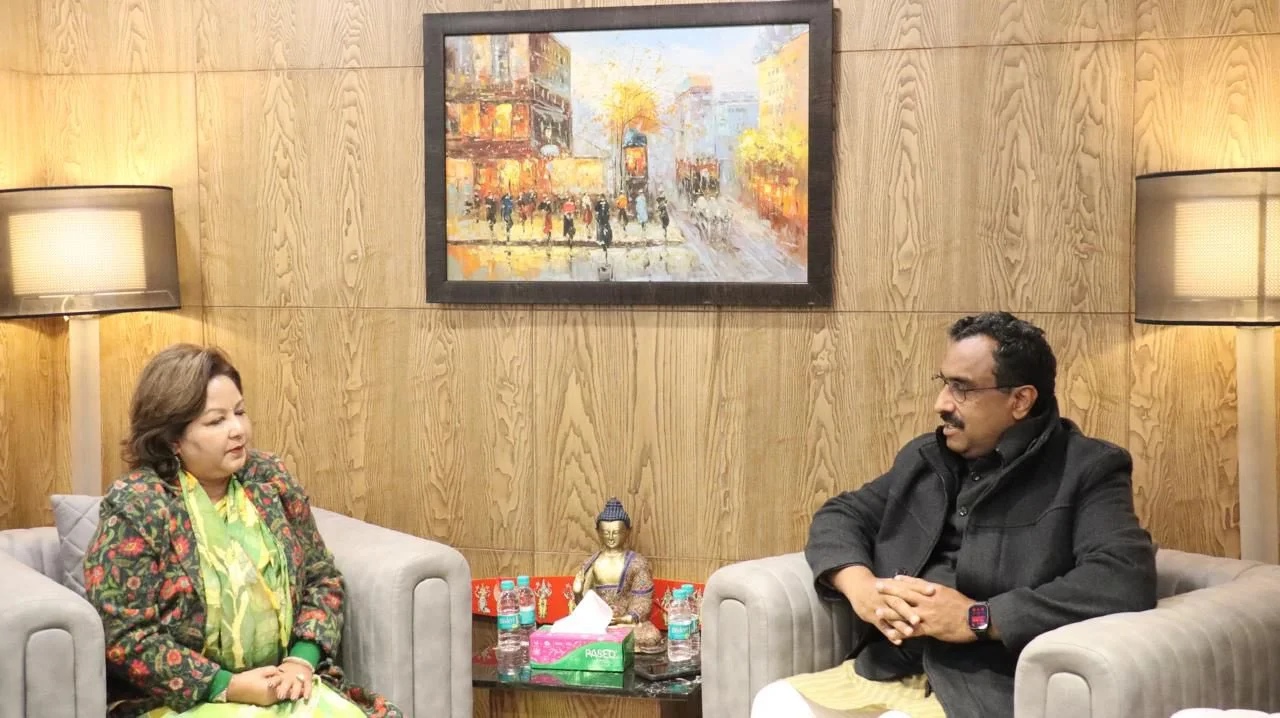MEA inquires about Nepal FM Rana's meeting with India Foundation

Kathmandu, December 29 — The fallout from Foreign Minister Dr. Arzu Rana Deuba's recent visit to India has yet to subside.
After traveling via Germany, Rana arrived in India on December 19, but her meetings with Indian officials failed to materialize.
On December 23, the India Foundation, a think tank affiliated with the Bharatiya Janata Party (BJP) and the Rashtriya Swayamsevak Sangh (RSS), organized an event where the foreign minister was finally able to meet with several prominent figures, including former ministers and intellectuals from India. However, this meeting has since become a source of controversy.
The India Foundation, which operates as a think tank for the Indian government, did not inform the Indian authorities about inviting Nepal's foreign minister. As a result, the Indian Ministry of External Affairs (MEA) reportedly sought clarification from India Foundation officials regarding the lack of communication and the unsanctioned meeting with Minister Rana.
Sources suggest that the MEA questioned India Foundation’s president, Ram Madhav, about the arrangements and the absence of prior approval from the Indian government.
Ram Madhav, a former General Secretary of the BJP and an executive member of the RSS, now heads the India Foundation. Although he currently holds no formal position within either the BJP or RSS, Madhav has maintained close ties with both organizations. His leadership of the India Foundation and its actions have raised eyebrows, especially regarding the unplanned engagement with the Nepalese foreign minister.
The meeting at the India Foundation’s office on December 23 included discussions with a range of former Indian ministers and intellectuals. Minister Rana also met with Madhav privately.
It is important to note that Rana and Madhav have a long-standing personal relationship, which may have influenced the informal nature of the encounter.
During the India Foundation meeting, Foreign Minister Rana discussed Nepal’s decision to sign the Belt and Road Initiative (BRI) agreement with China. She stated that the signing of the agreement was a necessary step to maintain the stability of the current coalition government in Nepal.
Rana emphasized that had Nepal refused to engage with China on the BRI, it could have led to a breakdown in Nepal-China relations and a missed opportunity to meet with Chinese President Xi Jinping.
Rana also reassured her Indian counterparts that the BRI agreement would not adversely affect Nepal-India relations. She clarified that Nepal was not in a position to take on loans under the BRI framework at present. Instead, she said, Nepal would focus on selecting grant-based projects to implement, thus avoiding the burden of debt.
According to an official from the RSS in Nepal, Rana expressed confidence that the grant projects would benefit Nepal without straining its financial situation.
The incident has raised concerns within Nepal’s diplomatic circles, especially regarding the implications of informal and unsanctioned meetings with foreign entities. While the meeting with India Foundation provided a platform for Rana to discuss Nepal's foreign policy and the BRI, the lack of coordination with the Indian government has left room for criticism.
Observers are questioning the potential diplomatic consequences of such an engagement and whether it might affect Nepal’s relations with India in the long run.










Leave Comment